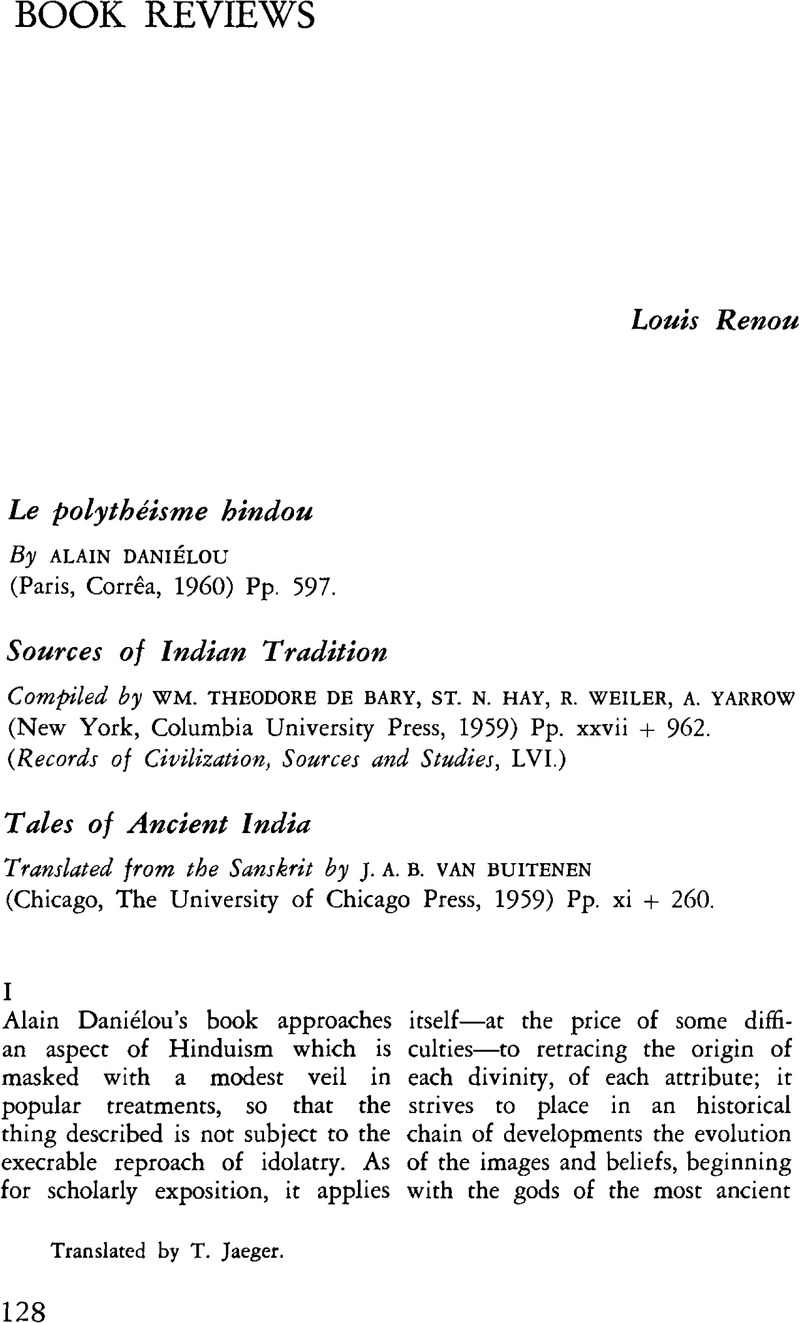No CrossRef data available.
Published online by Cambridge University Press: 03 July 2024

1 Note what Blanchot writes in Le Livre à Venir, p. 105: "A symbolic reading is probably the worst way of reading a literary text… If the prophetic words reached us, they would make us feel that they contained neither allegory nor symbol, but that, by the concrete force of the word, they laid bare all things, a bareness… which, like a face, is light, the absolute of light…"
2 The linguists will be equally reticent if they take seriously, I mean if they consider authentic etymologies, the semantic resonances to which A. Danié lou is sensitive, when he "translates" the name of the Gandharvas with the Per fumes, or that of Shiva by the Lord-of-Sleep. It is indeed a question of evo cations, like the pseudo-etymologies which, from the Vedic time on, are attested by the Nirukta, that eminent source of all the onomastic symbols of the Indian gods.
3 Published under the direction of S. Radhakrishnan and Charles A. Moore, Princeton, 1957.
4 "Le Renoncement dans les Religions de l'Inde," in Archives de Sociologie des Religions, No. 7, 1959.